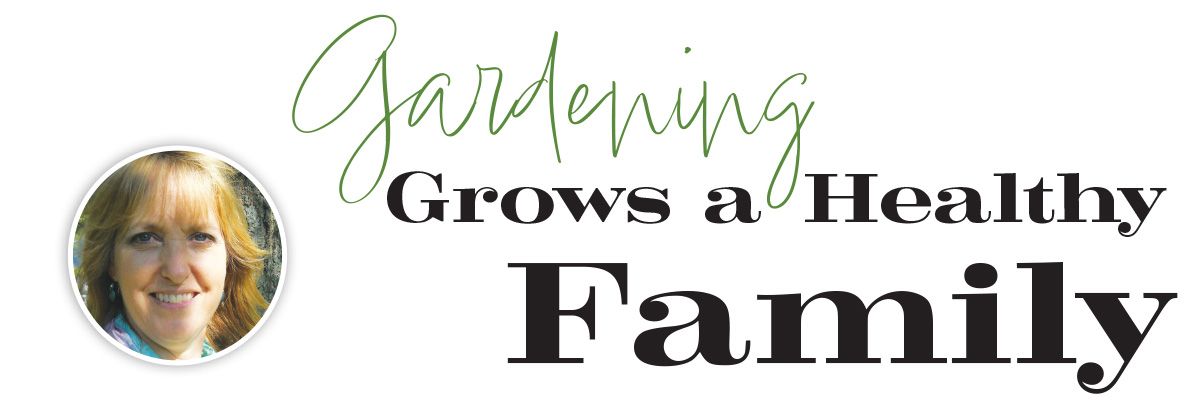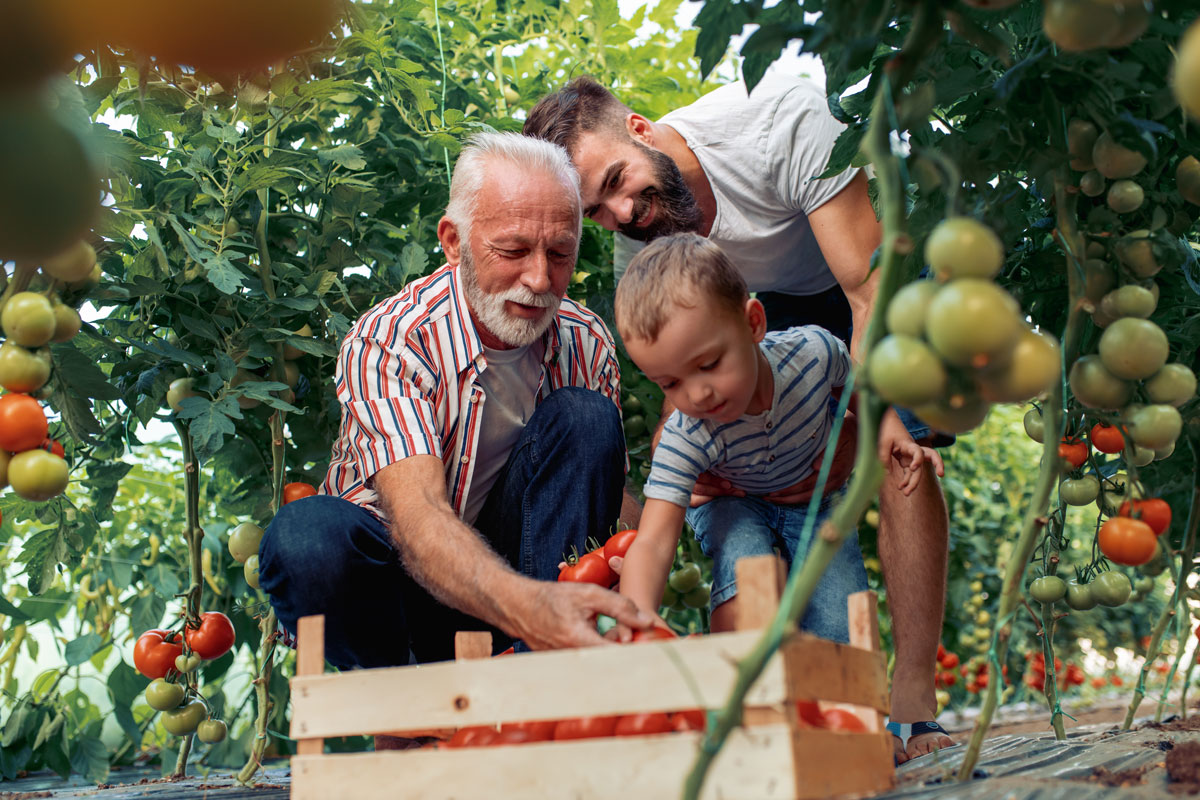
Written by Diane Whitten, Nutrition Educator, Cornell Cooperative Extension Saratoga County

Gardening can be a great family activity where different family members can be involved at different levels, but all will reap the health benefits. Plus, it’s good for the family budget when a $2-$5 investment in seeds can provide you with baskets of healthy produce.
First, adults need to decide where to put a garden, hopefully you have a sunny space with well-drained soil. If you don’t have good garden soil or enough space, vegetables can be grown in containers very successfully. The Cornell Cooperative Extension Master Gardeners can give you details about container gardening, including what types and varieties of vegetables grow best in containers. Children like to have their own container to plant, water, and watch as their beans, greens or cucumbers grow. Gardening, even on a small scale can teach children so much about where their food comes from.
Next, everyone can help decide what to grow. An older adult might have experience with gardening and know what grows best, or what variety tastes best. Let your children be part of the process to get them invested in the family effort of producing your own food. Children like to see quick results, so plant something that will produce early in the season, such as snow peas. The pea seed is quite large, so even small children can help plant them directly in the soil, as early as April. Shoots can survive a light frost plus they don’t like hot weather, so plant early and harvest in June.
Gardening can be good physical activity for the whole family while you till the soil, plant the seeds, and weed the garden. These activities involve pulling, reaching, stretching, bending, twisting, digging...gardening is not a sedentary activity! Being out in the sun while gardening can also increase vitamin D levels in your blood. Vitamin D helps maintain strong bones and boosts your immune system; but don’t forget sunscreen and sunglasses for protection from UV rays!
The best part of gardening is harvesting the “fruits” of your labor. Some types of produce can be harvested all at once like potatoes, but usually it’s an ongoing process, like picking the peas when each pod is mature. Children may enjoy this part most of all, and they’re much more likely to try new vegetables when they’re involved in growing and picking them. Eating your home-grown fresh and vibrant vegetables will increase your family’s intake of vitamins, minerals, fiber, and antioxidants. Regardless of how you grow your produce, always wash fruits and vegetables in clean, running water before eating.
If your garden yields an abundance of produce, more than you can eat before it spoils, try your hand at home food preservation. Freezing is the easiest way to preserve food, but you might try pickling, canning, or drying to enjoy your home-grown vegetables year-round! Cornell Cooperative Extension is an excellent resource for all your food preservation questions and has food preservation classes coming up this season.
Cooperative Extension is also a wonderful source of information on gardening, including what varieties of vegetables thrive in upstate NY, what plants grow well together, and what might be bugging your produce. Gardens grow best when the soil pH is within a certain range. To determine your soil pH, bring a soil sample to the Cornell Cooperative Extension office in Ballston Spa to have the pH tested for just $1. Contact Cornell Cooperative Extension of Saratoga County at www.ccesaratoga.org or 518-885-8995 to learn more about food preservation and gardening.